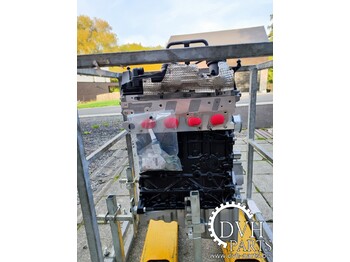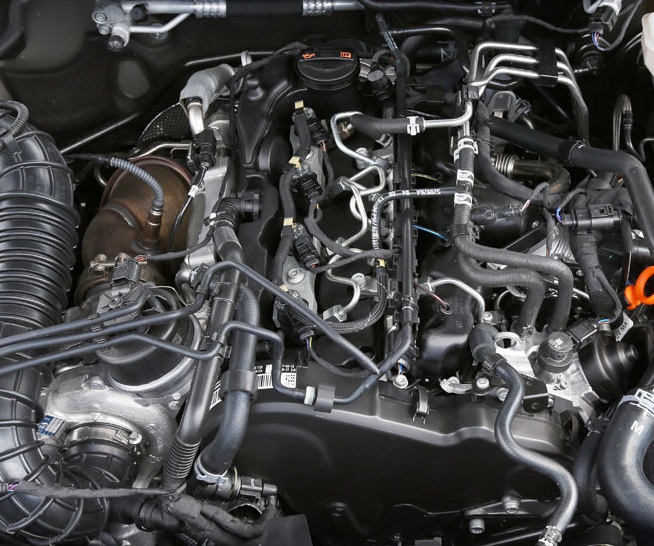Discover the Best Deals on Amarok Engine for Sale-- High Quality and Efficiency Guaranteed
Discover the Best Deals on Amarok Engine for Sale-- High Quality and Efficiency Guaranteed
Blog Article
Important Factors To Consider and Tips for Picking the Right Engine for Your Requirements
Choosing the ideal engine is a complex choice that calls for cautious consideration of various factors to make certain optimum efficiency for your particular needs. The complexities of engine choice expand beyond these fundamentals, triggering a more detailed examination of vital aspects that can ultimately influence your contentment and success.
Determine Your Function
Determining your objective is a critical very first step in picking the ideal engine for your requirements. Comprehending the certain application you have in mind will certainly assist your decision-making process and make sure that you choose an engine that lines up with your functional requirements. Whether you require an engine for a commercial automobile, industrial equipment, or a leisure project, each situation needs different efficiency characteristics and capacities.
Consider the atmosphere in which the engine will certainly operate. Will it undergo heavy tons, severe temperatures, or long term use? Examining these factors will help you determine the required power result, gas effectiveness, and toughness needed to fulfill your purposes.
Additionally, believe about the long-lasting implications of your option. Spending plan restraints, maintenance needs, and schedule of parts are essential factors to consider that will certainly affect your overall contentment and operational efficiency.
Eventually, articulating your purpose will simplify the choice process and encourage you to make a notified decision. By plainly specifying your purposes, you can examine possible engines better and choose one that not just meets your current demands yet likewise sustains your future objectives.
Evaluate Engine Requirements
As soon as you have actually clearly verbalized your purpose, the following step is to evaluate engine requirements. This procedure includes a thorough assessment of various technological details that can significantly affect performance and suitability for your planned usage.
Begin by examining the engine's horse power and torque ratings. Horsepower is critical for establishing the engine's ability to perform work, while torque is crucial for understanding exactly how well it can manage heavy lots or velocity. Furthermore, consider the engine variation, as it frequently associates with power outcome and performance.
Following, analyze the engine typeâEUR" whether it is a gasoline, diesel, or alternate gas engineâEUR" as each kind has distinctive qualities and applications. Focus on the engine's arrangement (e.g., inline, V-type), as this can affect size, weight, and overall performance.
Another important aspect is the engine's air conditioning system, which can influence reliability and upkeep requirements. Evaluate the producer's track record and guarantee offerings, as these can provide insights into lasting efficiency and support. Completely examining these requirements will assist make sure that you pick an engine that aligns with your operational objectives and details needs.
Think About Gas Performance
Fuel efficiency is an essential element to think about when picking an engine, as it directly impacts functional costs and ecological sustainability. An engine's gas efficiency is commonly determined in miles per gallon (MPG) for lorries or in particular fuel usage (SFC) for airplane and aquatic engines. Higher fuel This Site efficiency not just decreases the amount of gas eaten yet additionally decreases greenhouse gas exhausts, making it a liable option for eco-conscious customers.
When reviewing engine options, it is essential to assess the driving conditions and intended use. Engines optimized for freeway driving might exhibit better fuel effectiveness contrasted to those designed for stop-and-go web traffic. In addition, consider the engine's innovation, such as turbocharging or crossbreed systems, which can dramatically enhance fuel efficiency.

Assess Maintenance Needs

Some engines may call for even more frequent oil modifications, filter substitutes, or specialized servicing, which can impact your functional downtime. Engines with prevalent appeal usually have much better components accessibility, lowering lead times during repair work.
An additional critical element is the technological experience required for upkeep. Some engines may require specialized training for professionals, which might limit your choices for service carriers. Additionally, analyze whether the engine's design allows for simple accessibility to parts often needing upkeep, as this can considerably impact labor expenses.
Budget Your Financial Investment
Recognizing upkeep needs is just one aspect of choosing the appropriate engine; economic considerations play a just as vital function (amarok engine for sale). Establishing a clear budget plan is critical, as it affects not just the initial purchase cost yet additionally long-term operational prices
When budgeting, consider both the upfront expenses and recurring expenditures such as fuel effectiveness, maintenance, and prospective fixings. An apparently cost effective engine might sustain greater prices with time because of poor fuel economy or constant upkeep requirements. Furthermore, examine the accessibility and expense of spare components, in addition to the guarantees provided by manufacturers, which can provide economic defense versus unpredicted expenses.
It is likewise a good idea to consider possible financing alternatives or renting plans, which could reduce immediate economic worries. Stabilize your desire for advanced features with your spending plan restrictions, making sure that you buy an engine that fulfills your efficiency requires without jeopardizing economic security.
Ultimately, an all-around budget plan will empower you to make informed decisions, straightening your read this engine choice with both your monetary capacities and functional requirements, causing an extra lasting investment in the future.

Final Thought
Finally, picking the appropriate engine requires a detailed understanding of particular demands and applications. Mindful evaluation of engine specs, gas effectiveness, and maintenance requirements is necessary for educated decision-making. Additionally, establishing a comprehensive budget plan makes more info here certain that both first and continuous costs are convenient. By adhering to these individuals, organizations and considerations can make a lasting financial investment that aligns with their operational objectives and efficiency assumptions, inevitably enhancing overall effectiveness and efficiency.
Fuel effectiveness is an essential variable to take into consideration when selecting an engine, as it directly impacts operational costs and ecological sustainability. An engine's gas performance is generally measured in miles per gallon (MPG) for vehicles or in particular fuel consumption (SFC) for aircraft and aquatic engines. Diesel engines usually give better fuel effectiveness than gasoline engines. Ultimately, selecting an engine with a strong focus on fuel performance can lead to significant long-term savings and contribute positively to ecological initiatives. Mindful evaluation of engine specs, gas efficiency, and upkeep demands is important for notified decision-making.
Report this page